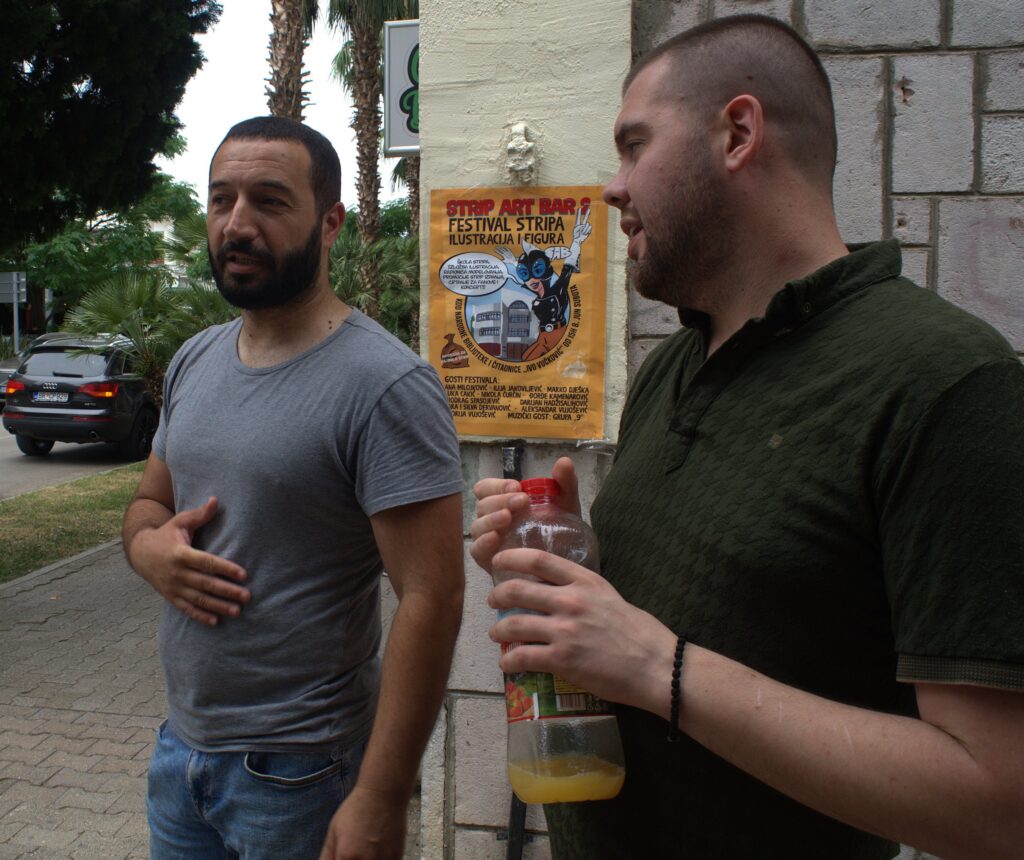A woman walks by a new hotel and resort under construction in Bar, Montenegro, in June 2024. (Cain Burdeau/Courthouse News Service)
A better future?
Not everyone Courthouse News spoke to, of course, was negative about the EU.
At a World War II museum dedicated to Yugoslavian communist partisan fighters, an older woman overseeing the exhibition was hopeful Montenegro will join the EU.
“We want to be part of Europe; but when, how, depends on many things,” the museum assistant said. She would only give her first name, Željka.
She worried large hard-core pro-Russia factions in both Montenegro and Serbia may derail her country’s route into the EU. Montenegro has historic ties with Serbia and Russia.
“Nobody knows what will happen,” she said. “The Balkans are always like sitting on a bomb.”
She too thought life was better under communism. A small bust of Josip Broz Tito, Yugoslavia’s longtime leader, sat on her desk.
“It was a beautiful country,” she said. “We all had apartments. We could pay for food; we had enough money for a good life. We went to Italy to buy clothes. Now, how can we live with 500 euros a month? It’s bad. Our food is more expensive than in Germany.”
The corruption and economy are awful, she said. Under such conditions, her children moved away for work.
“We are trying, after communism, to do capitalism, but it’s not working,” she said. The EU, she felt, represents a better future.
The kind of anti-EU sentiment found in Bar, experts said, represents a minority of people, many of them influenced by anti-Western rhetoric coming from the Serbian Orthodox Church and Serbian nationalists.
“The population is divided between those who identify as Montenegrins and thus see themselves as independent and continuing an autonomous state existence, and those who identify as Serbs and see their future as part of the Serbian state,” said Marc L. Greenberg, a specialist in Slavic languages and the Balkans at the University of Kansas, in an email.
In Montenegro, as in Serbia and Russia, there are nationalistic elements advocating an anti-Western worldview, he said.
“The Serbian world project has dominated the media — but not entirely — and propagated if not outright hostility to the EU, at least suspicion of its aims,” he said.
In that perspective, the EU is identified with the United States and “its recent history of unilateralism, which breeds distrust and can help explain the negative view” found among people in Bar, he said.
Also, frustration has grown after 16 years in which Montenegro has made reforms required for EU membership.
“There is impatience that for all of Montenegro’s hard work, they still remain in the ‘waiting room,’” said Kenneth Morrison, a historian and specialist on Montenegro at De Montfort University in England. “There is quite a bit of skepticism regarding whether membership will ever come.”
Courthouse News reporter Cain Burdeau is based in the European Union.
Follow @cainburdeau
Subscribe to Closing Arguments
Sign up for new weekly newsletter Closing Arguments to get the latest about ongoing trials, major litigation and hot cases and rulings in courthouses around the U.S. and the world.
Source link : https://www.courthousenews.com/skepticism-bubbles-up-in-montenegro-after-16-years-of-waiting-for-eu-membership/
Author :
Publish date : 2024-09-13 07:00:00
Copyright for syndicated content belongs to the linked Source.
